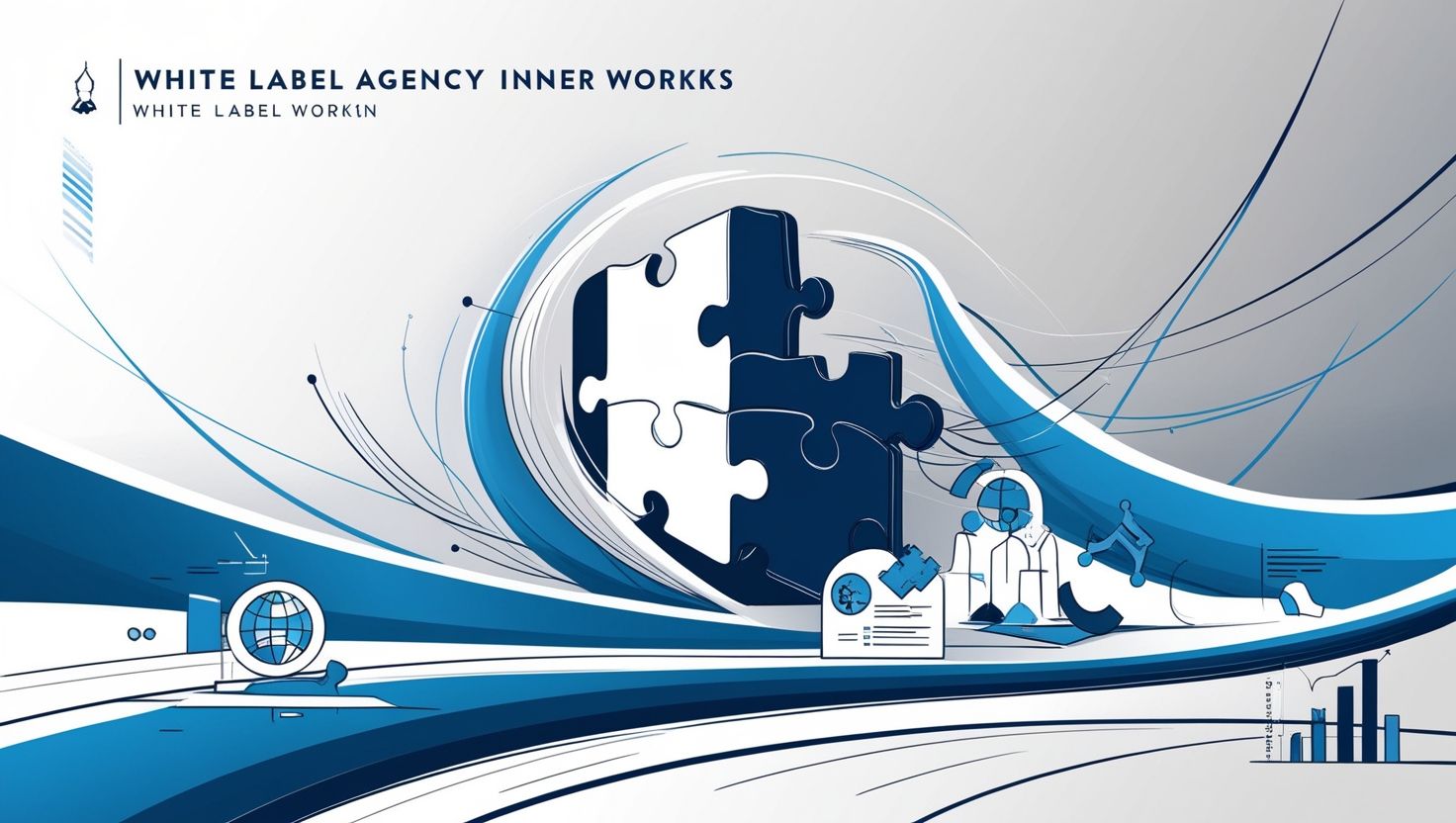What Is a White Label Agency and How Does It Work?

Strong 8k brings an ultra-HD IPTV experience to your living room and your pocket.
In today’s fast-paced digital landscape, businesses are always on the lookout for ways to offer more value to their clients without stretching their resources too thin. One strategy that has gained significant traction is partnering with a white label agency. But what exactly does this mean, and how does it work?
What Is a White Label Agency?
A white label agency is a company that provides services or products that other businesses can rebrand and sell as their own. These agencies typically operate behind the scenes, offering specialized services such as web design, content creation, digital marketing, and software development. When a business partners with a white label agency, it can deliver high-quality services to clients without having to handle the technical aspects or production processes itself.
Essentially, the white label agency creates the product or service, such as white label digital marketing services, while the partner business brands it, sells it, and takes credit for the outcome. The agency's name is rarely, if ever, mentioned. This allows the business to offer additional services to their clients without hiring new staff, building new expertise, or managing additional operational burdens.
How Does a White Label Agency Work?
A white label agency works by providing businesses with ready-to-go services or products that the business can offer under its own brand. Here’s a look at the typical process:
Partnership Formation: The first step is for a business to identify a white label agency that offers the services they need. This might involve web development, SEO, social media management, or even more niche services like video production or app development. After finding the right agency, the business enters into a partnership agreement.
Branding and Customization: Once the business partners with the white label agency, the agency will deliver the service or product in a way that the partner can rebrand as their own. For example, a marketing agency might provide a ready-made SEO strategy, and the partner business would simply add their branding and pass it on to the client.
Client Delivery: The partner business then delivers the final product or service to its clients, who are unaware that a third-party agency handled the work behind the scenes. The partner business manages client relationships, billing, and support, while the white label agency handles production.
Ongoing Support and Maintenance: Depending on the agreement, the white label agency may also provide ongoing support or updates to the services it delivers. This ensures the partner business can continue to provide high-quality services without becoming involved in the day-to-day tasks.
Why Businesses Use White Label Agencies
There are several reasons why companies choose to use white label agencies. Here are some of the primary benefits:
Cost Savings: Establishing a new department or team to handle a specific service can be costly. A white label agency allows businesses to offer a wider range of services without the need to hire new staff or invest in specialized infrastructure. The business only pays for the services it uses, making it a cost-effective solution.
Focus on Core Competencies: By outsourcing certain tasks to a white label agency, a business can free up its internal resources to focus on what it does best. This allows the company to grow without spreading itself too thin or trying to master new skills that aren’t part of its core business.
Access to Expertise: White label agencies are often highly specialized and staffed with professionals who have extensive knowledge in specific fields. This means businesses can tap into expert-level services without having to train in-house staff or deal with the complexities of managing different types of projects.
Scalability: As a business grows, the demand for services may increase. Working with a white label agency gives companies the ability to scale quickly without the burden of hiring and training new employees. The agency can handle an increased workload, while the business continues to operate under its own brand.
Brand Consistency: Since the white label agency produces the service or product in the same format each time, the partner business can maintain a consistent level of quality. This ensures that the end clients receive uniform services, which helps build trust and brand credibility.
White Label vs. Private Label: What's the Difference?
While the terms “white label” and “private label” are often used interchangeably, they do have some differences. Both involve reselling products or services, but the key distinction lies in how the branding is applied.
White Label: A white label product or service is created and branded by a third-party company, but it is sold to multiple businesses, who can then rebrand it as their own. The end client often doesn't know who the original creator is.
Private Label: Private labeling, on the other hand, refers to products or services that are created specifically for one business. The business may have more control over the design and development of the product, but it is still sold under its own brand. The private label company typically works exclusively with one partner.
In short, a white label product can be sold to many companies, while private label products are typically exclusive to one business.
Common Industries Using White Label Agencies
White label agencies operate in a wide variety of industries. Some common sectors that frequently use white label services include:
Digital Marketing: Many marketing agencies partner with white label companies that specialize in areas such as SEO, social media management, and PPC advertising. These agencies can offer clients a full suite of marketing services without having to employ experts in every discipline.
Web Development: A web design or development agency may outsource tasks like website building, app development, or even e-commerce solutions to a white label agency. This allows the partner company to offer more diverse services while ensuring high-quality output.
Content Creation: Content agencies often rely on white label agencies for services like article writing, video production, or graphic design. They can quickly scale content production without the need to hire additional in-house staff.
Software Development: Many software companies use white label agencies to build or customize software solutions. This way, they can offer a variety of software options to their clients without investing in internal development teams.
IT Services: IT consulting firms may partner with white label agencies that offer technical support, network administration, or cloud computing services. This lets the consultant focus on strategy while outsourcing the technical work.
How to Choose the Right White Label Agency
Choosing the right white label agency is crucial for ensuring quality and maintaining good relationships with clients. Here are a few tips to keep in mind when selecting a white label partner:
Assess Their Expertise: Look for an agency with a proven track record in the specific services you need. It's essential to ensure that the agency’s team has the skills and experience to deliver high-quality results.
Check References and Reviews: Seek out client reviews, case studies, or references from businesses that have worked with the agency. This will give you insight into how reliable and effective they are at delivering on their promises.
Consider Communication and Support: Communication is key in any partnership. Ensure the white label agency provides excellent customer service and is easy to work with. Clear communication can help prevent misunderstandings and delays.
Evaluate Pricing Models: Different white label agencies have different pricing models, so it's essential to choose one that fits your budget. Ensure that there are no hidden fees or surprises when it comes to costs.
Ensure Brand Alignment: The agency should understand your brand values and goals. Even though the service or product will be delivered under your name, it should reflect your company’s quality and standards.
Potential Challenges with White Label Agencies
While working with a white label agency can offer numerous advantages, there are also some potential challenges to consider:
Quality Control: Since the work is being done by a third party, maintaining consistent quality can sometimes be a concern. It’s important to establish clear guidelines and expectations to ensure the final product meets your standards.
Client Transparency: Some businesses may feel uncomfortable with the lack of transparency that comes with white labeling. Clients might prefer to know who is actually behind the services they are receiving. It’s important to strike a balance between delivering excellent service and being transparent when necessary.
Dependence on the Agency: Relying too heavily on a white label agency can create a dependency. If the agency faces issues like staffing shortages, changes in quality, or disruptions in service, it could impact your business.
Competition: Since multiple businesses may use the same white label services, there is a chance of your competitors offering the same solutions under their brand. To mitigate this, you may want to consider adding a unique value proposition that sets your services apart.
Conclusion
A white label agency is a powerful tool for businesses looking to expand their service offerings without investing significant time or resources. By partnering with a white label provider, businesses can deliver high-quality solutions under their brand name, providing more value to clients and boosting revenue without the need for in-house expertise. However, it’s essential to carefully choose the right partner and maintain clear communication to ensure the partnership is beneficial in the long run.
Note: IndiBlogHub features both user-submitted and editorial content. We do not verify third-party contributions. Read our Disclaimer and Privacy Policyfor details.





